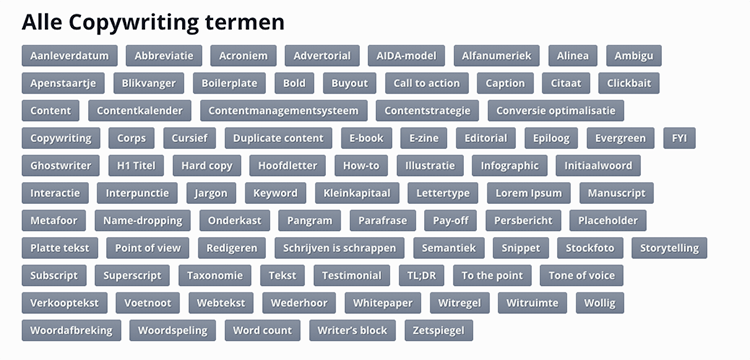Menu
Table of contents
But why should you start a knowledge base? What should you pay attention to and what are useful tips?
I'm going to tell you all about that.
What is a knowledge base?
A knowledge base is a collection of specific information stored in a central location, making it easily accessible to customers, potential customers, employees or any other target group.

So. That was my best Wikipedia impersonation. Of course, a knowledge base is nothing but a place where terms and techniques are explained to make things easier and understandable.
For whom is a knowledge base of interest?
Is a knowledge base of interest to everyone? No, of course not. If you are a plumber or a small local party, it is not of interest.
Whether a knowledge base is of interest to you also depends on the goal. Do you want to become more findable and bring in more leads? Is the knowledge base intended to ensure that new personnel know all terminologies? Or do you want to make potential customers smarter?
Those are first questions you need to answer. Think carefully about what you want to achieve with the knowledge base. Then you can also determine if it is of interest to you.
Beyond that, of course, I find something about that. I think a knowledge base is especially interesting if you are in a knowledge corner. For example, think a:
- An online marketing agency
- An IT company
- Consulting firm
- Website that is crypto related
5 reasons why you should start a knowledge base today
You may not be 100% convinced yet whether you should start a knowledge base, but you absolutely will be after these 5 reasons.
Reason #1: Having a knowledge base allows you to be much more findable. Since you write a lot of content on specific keywords, your findability is going to go up tremendously. Google sees that you write content based on specific keywords and so you have a chance to be shown on those terms. Provided it is informative in nature, of course.
Reason #2: A knowledge base is going to save you time and money. Let's say you're working with interns or growing hard. You want the basics and processes to be as well-written as possible. When you have all the terms written out, you avoid questions, employees can continue working without your input and you don't have to spend time explaining certain things.
Reason 3: A knowledge base can increase conversion. You can set up a knowledge base for your findability, but it can also be created for your students, existing customers or potential customers. When you explain the terms, they will better understand your product, service or added value. This can make going through the process even easier.
Reason #4: A knowledge base is good for your internal link profile. I already mentioned that a knowledge base can improve your findability because you have more content. But a knowledge base can also improve your findability because your internal link profile is better because of the knowledge base. Because you have more content, you can link the content better and easily, and so Google can find your content better.
Reason 5: A knowledge base allows you to become an authority. If you google terms like "marketing" and "KPI," you'll see search results from OMA come up. That's really cool. This causes people to see us as an authority because we rank high on such generic terms. Then, when they also subsequently see your LinkedIn post, you're all in.

When is a keyword interesting for a knowledge base?
I find that many marketers and business owners find it difficult to determine when a keyword is appropriate for a blog, when for a landing page and when for a knowledge base.
So I'm going to explain that as simply as possible.
If the intent of a keyword is to inform, so for example the keyword "set up knowledge base," then this keyword fits a blog.
If the intent of a keyword is to convert, so for example with the keyword "marketing outsourcing," then this fits a landing page.
And what remains for the rest, you may pop into your knowledge base :-).
7 tips for your knowledge base
To help you further on your way, I also have some tips for you. Our knowledge base now consists of 1000+ pages, so we have quite a bit of practical experience.
- Tip #1: Make use of categories. Don't throw everything in 1 big pile.
- Tip #2: At first, really focus on quantity. Don't make your first few knowledge base articles 500+ words.
- Tip #3: Link a lot internally within articles.
- Tip 4: Make sure your search function works well and also search the knowledge base
- Tip 5: Add relevant content on your knowledge base pages. Think about your recent blogs or a download of your e-book.
- Tip 6: When you have sufficient quantity, expand the main knowledge base articles.
- Tip 7: Make sure all On Page SEO elements of the knowledge base articles are in order.











Written by: Daniel Kuipers
Daniel is the founder of Online Marketing Agency. He constantly scours the Internet for the latest gadgets and tactics and blogs about them in understandable language. Well, sometimes.